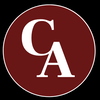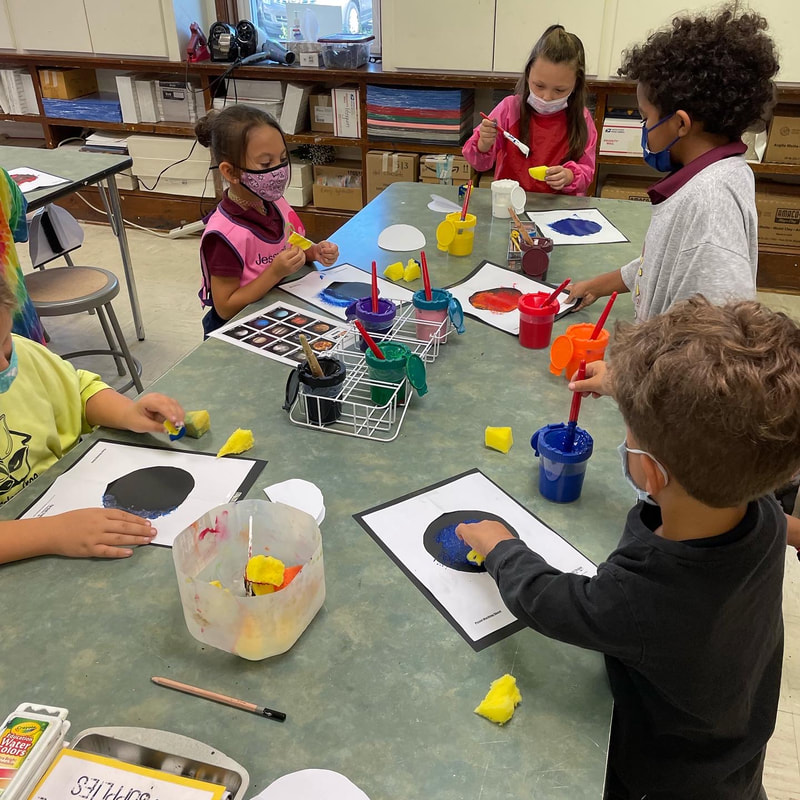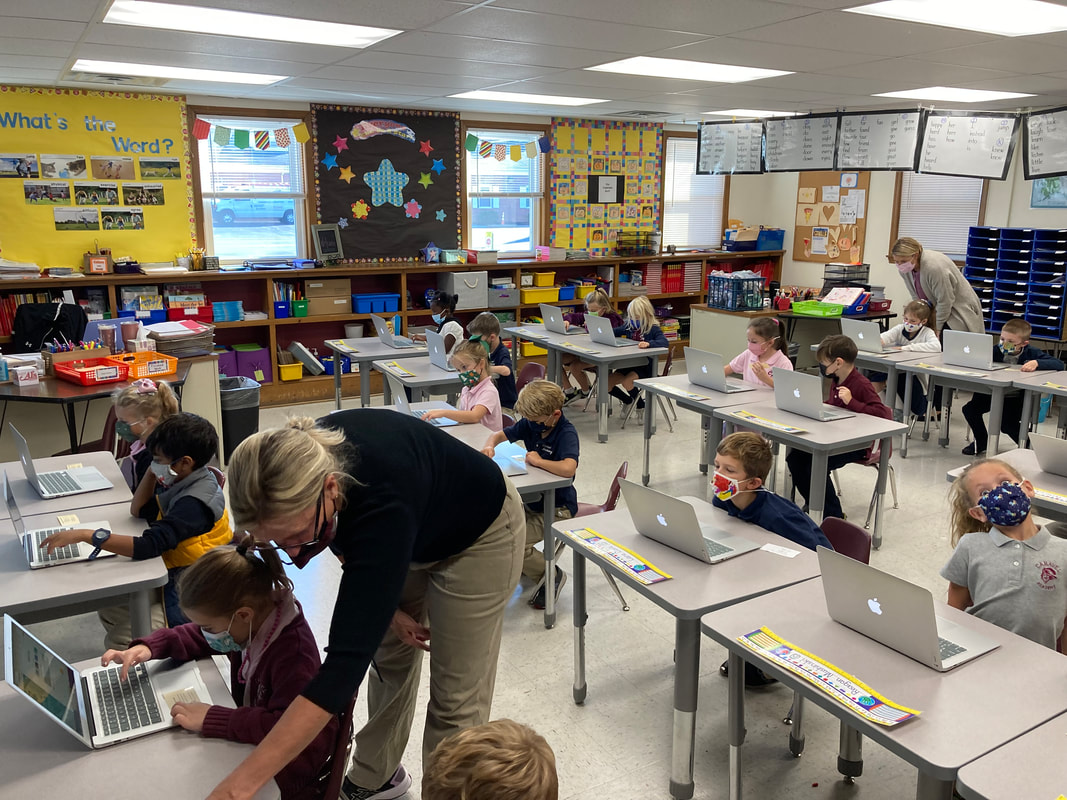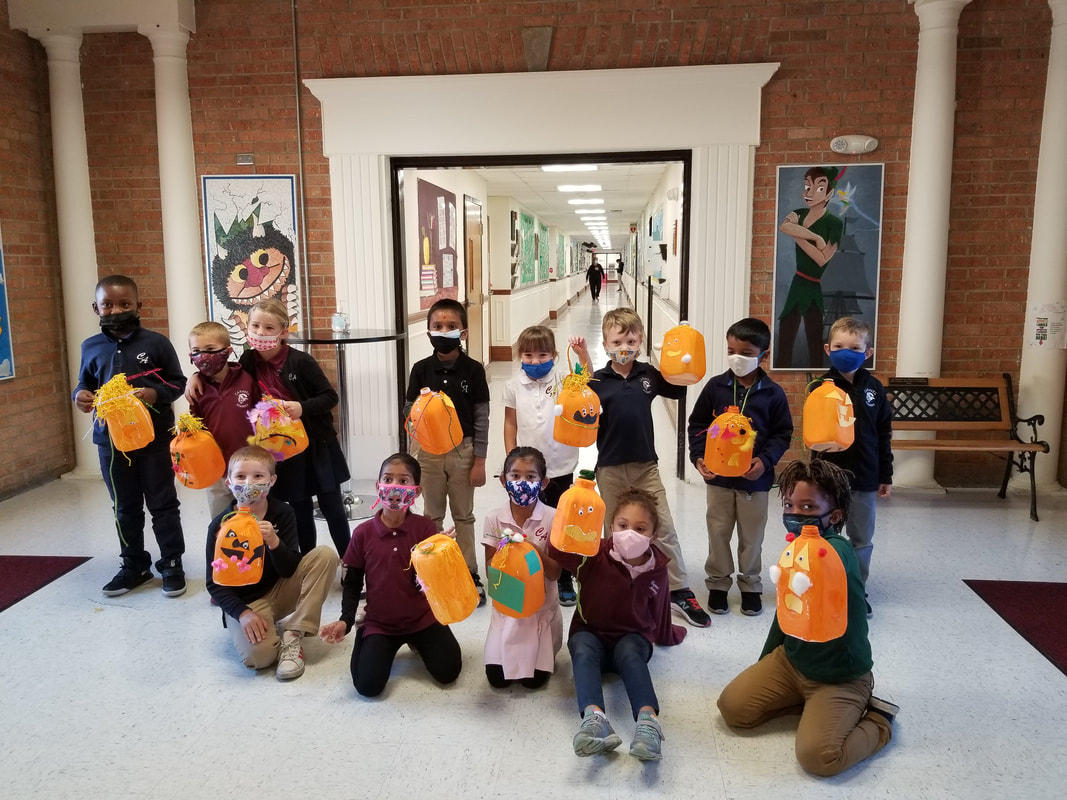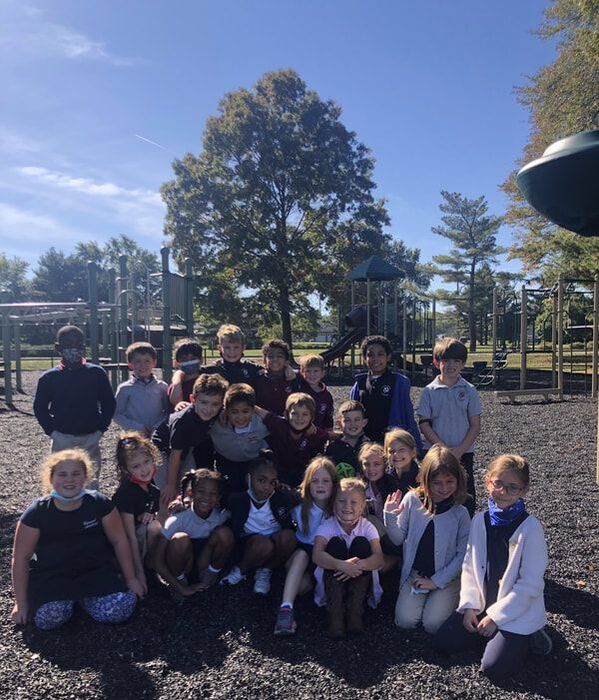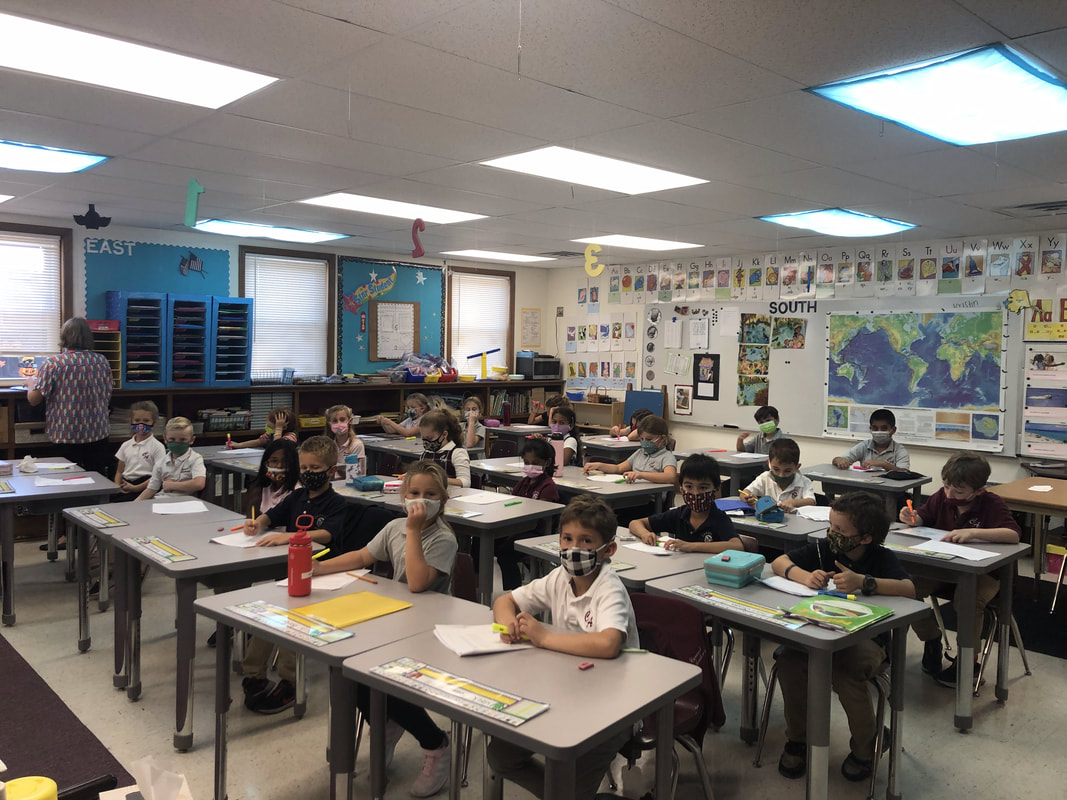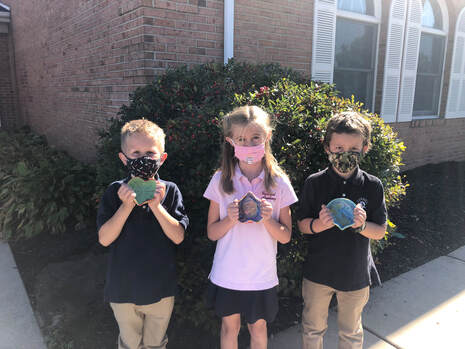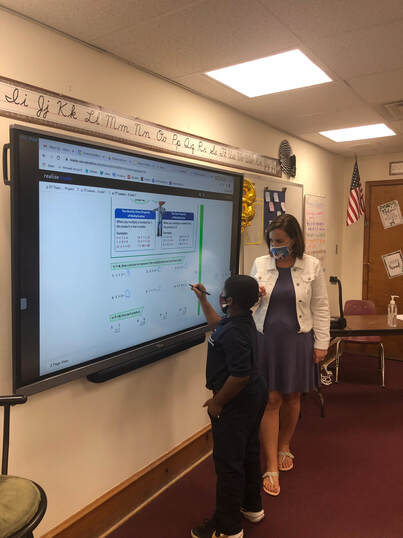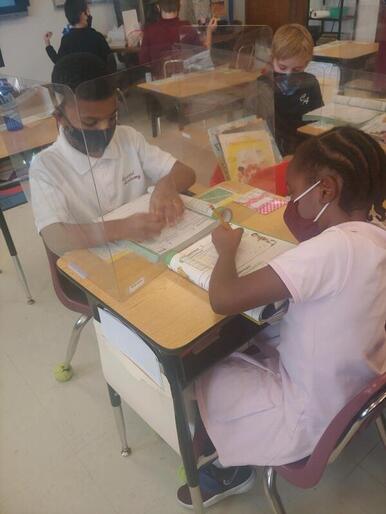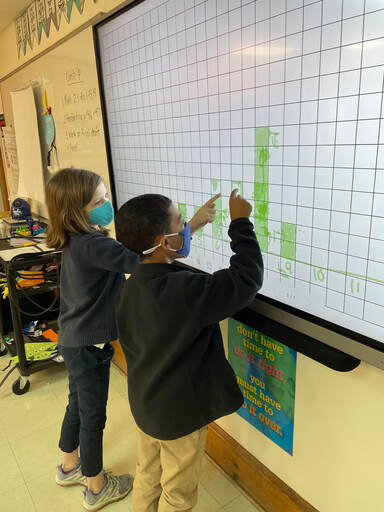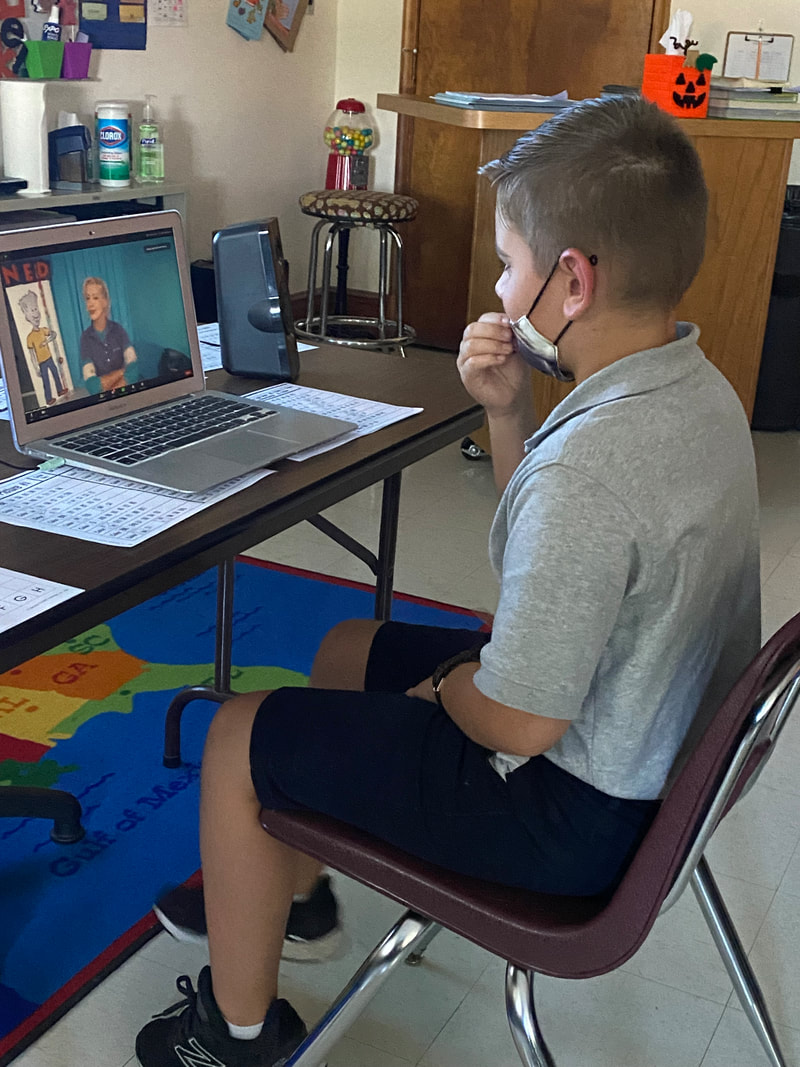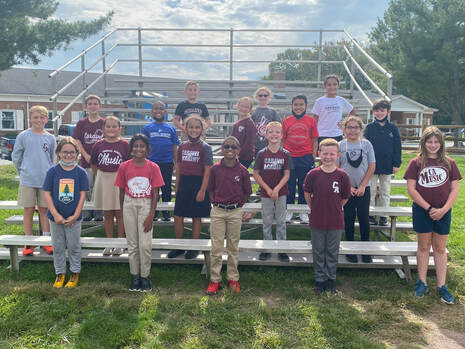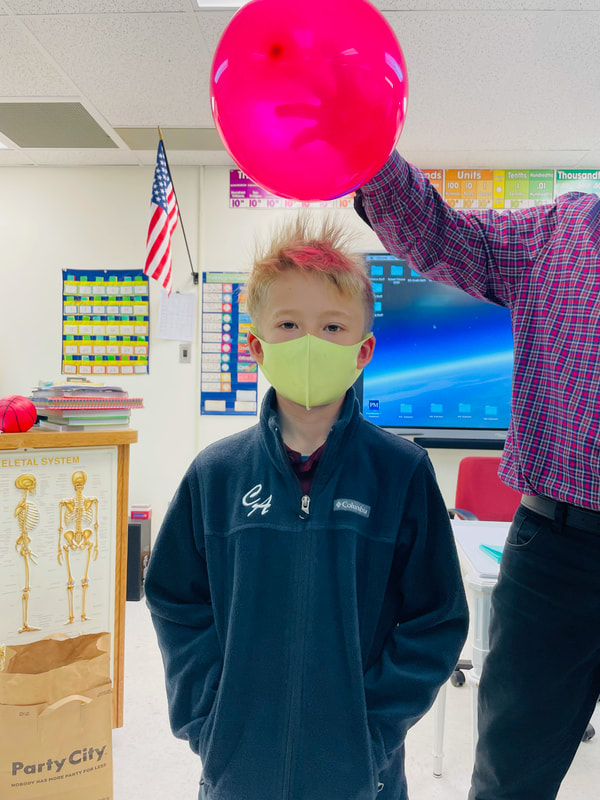Caravel Academy is a private college preparatory school that upholds the traditional American values of honesty, personal integrity, and good sportsmanship. Our evolving curriculum exceeds national and state standards. Technology is evident everywhere with Optoma Interactive Flat Panels located in every lower school classroom as well as our library and music room. In addition to offering a diverse and challenging course of study, we enjoy many school traditions, including the Halloween parade, the Winter and Spring Fine Arts Festivals, Field Day, the Spring Fling and Kids Heart Challenge. Our Christmas Tree Trim celebration is not limited to the Lower School - the entire school participates from the 3 year olds to the seniors! The Easter Egg Hunt and sports clinics are sponsored by upper school students. These diverse programs promote positive attitudes and help our students develop self esteem; both essential qualities of leadership.
Our continual commitment to improving our facilities is evident in our new lower school playground. This beautiful space includes several new play items and state-of-the-art X-Grass turf for our playground surface. This new surface allows for a year round use of our playground. Our new cafeteria is a large open space where students can purchase healthy lunches and groups can convene for assemblies, banquets, and other special events. In addition, continual maintenance of our athletic fields has made them some of the best in the state of Delaware. All of these improvements are made in an effort to promote an optimal environment in which lower school students can thrive.
Come visit Caravel Academy’s Lower School, and you will see why it is such a special place. Students feel at home and are actively engaged in their learning. While our mission is to ultimately prepare students for college, Caravel Academy’s Lower School also inspires students to develop a lifelong love of learning in a safe and supportive community. Just visit our picturesque campus and you will find a welcoming atmosphere where students can truly discover their potential at Caravel Academy.
SINCERELY,
John Smith
Lower School Principal
[email protected]
Lower School Program Overview
All students in our Lower School are provided instruction in specials including physical education, world language, art, computers, music and library skills.
|
Grade One
Reading Reading in first grade is based on a good foundation in decoding skills. Students recognize and apply knowledge of initial and ending consonant sounds, long and short vowel sounds, and consonant digraphs. Materials used include Wonders and Mc-Graw Hill Education and Decodable books. Mathematics Basic skills in the arithmetic of whole numbers are covered in first grade. These skills include the counting, ordering and writing of numerals by ones, fives, and tens to one hundred. Students learn to read a calendar, tell time, identify basic shapes and patterns, and count money. The course allows for individual differences and permits each student to experience a sense of achievement. Materials used include Envision Math 2.0 and Scott Foresman Addison Wesley Mathematics. Language Arts/Spelling First grade Language Arts/Spelling provides a wide range of experience including listening, speaking and writing. Children will use their phonetic skills to correctly spell simple words. Materials used include Wonders and McGraw-Hill Education. Social Studies Social Studies in first grade define the family unit and goes on to identify community workers. Students examine personal changes and feelings, and how families and communities change. They learn to use maps and globes and identify criteria for making good rules. Scholastic News, Theme Based Units and Brain Pop Jr. are instructional materials used for this subject. Science Children's observations about the world around them is the basis for Science in first grade. A development of creative and critical thinking skills through observing, questioning, activities, projects, and other techniques are employed. |
|
Grade Two
Reading Reading in second grade has an emphasis on comprehension skills to include whole-part and cause-effect relationships, sequencing, finding similarities and differences, drawing conclusions, summarizing, and making inferences. Children are exposed to a variety of genres and encouraged to express thoughts and ideas related to stories using writing conventions and correct grammar in Language Arts. Materials used include Wonders and Wonders/McGraw Hill. Language Arts In second grade language provides a wide range of experience combining writing conventions and styles with a grammatical component. Children are taught the writing process including dictionary and research skills using Wonders/McGraw Hill instructional materials. Spelling The spelling text in second grade provides a thorough systematic study of words and spelling processes to enable students to communicate early in writing. Students apply word analysis principles in learning to spell words phonetically. Students are expected to incorporate these words in all other subject areas and apply correct writing conventions taught in Language Arts. Materials used include Wonders and Wonders/McGraw Hill. Mathematics Mathematics in second grade covers basic skills in the arithmetic of whole numbers. Children will explore and explain why the algorithms of arithmetic work the way they do. They will learn to apply their skills through real life problem solving. Addition and subtraction of two-digit numbers with and without regrouping is taught as well as telling time, and money concepts through $1.00. Geometry, fractions, and measurements are applied to real life situations. Envision 2.0/Pearson are some of the materials used. Science Second grade science is developed and built on children's natural curiosities about the world around them. Students develop an understanding of how science relates to everyday life as they study Earth's plants, and weather & water cycle. Students learn ways to protect and conserve our natural resources. The science program develops creative and critical thinking skills and abilities through reading, experimenting, activities, projects, and other techniques. Materials used include FOSS Kits. Social Studies In second grade social studies is taught to help the students understand their physical and human world so that they may become better citizens. Children learn that a successful group has a good leader and responsible followers who need to work together to achieve goals which include the study of our local and national governments. Students will discover some ways that people in groups interact, communicate and share common interests. Horizons: About My Community, maps and globes are materials used in Social Studies. |
|
Grade Three
Reading Reading in the third grade is based on a reading for comprehension approach. Comprehension skills are developed using the four major relationship skills: whole-part, sequential, comparative, and cause-effect. Students develop these skills using synonyms, antonyms, homophones, prefixes, and suffixes. Materials used include reference materials, library books and Wonders. Language Arts The language program provides a wide range of language experience beginning with reading, listening, speaking and composition. Students write sentences using nouns, verbs, adjectives, and adverbs. Identifying and writing topic sentences and using these sentences to write paragraphs is emphasized. Wonders is utilized as an instructional material. Spelling Being a good speller helps a child to express thoughts on paper feely without constantly having to check words in a dictionary. The Macmillan/McGraw-Hill Program (Treasures) provides thorough, systematic study of words and spelling processes so that the pupils can communicate clearly in writing. There is an emphasis on application of phonetic and structural analysis, the study of word lists and the use of words in context. Mathematics Mathematics in third grade starts with an introduction to the foundation of multiplication and division. Students learn patterns of multiplication and division facts; they also work with addition and subtraction facts up to 1.000. Students review the basics of geometry, fractions, telling time, and reading data. Envisions 2.0 and the Scott Foresman/Addison Wesley workbook are materials used in third grade math. Science The third grade science program focuses on Structure of Life and Motion and Matter. Students start by discussing and experimenting scientifically that anything with a seed is considered a fruit. They learn by dissecting seeds in fruit, how seeds move, the life cycle of seeds and animal life, and how seeds grow. Students also work with forensics by looking at fingerprints, magnetism and gravity, mixtures and reactions, and more. They use the instructional material Science by Foss. Social Studies Social Studies in third grade introduces students to the study of people living in various communities with an emphasis on understanding how people live successfully in a heterogeneous society. Students develop social studies reading skills as well as the map and globe skills needed to study the world. The social studies program provides activities that encourage group cooperation and independent work habits, as well as positive attitudes and values toward the world of work. Materials used include People and Communities and Harcourt Horizons. |
|
Grade Four
Reading Reading in the fourth grade is based on a meaning-discrimination approach. Decoding skills based on sound-symbol relationships are integrated with word meaning through experiences and context. The elements in literature such as setting, characterization, and plot are stressed. There is an emphasis on various reading and language skills such as simile, metaphor, personification, and idioms. Novels are used to expand each child's reading skills. Wonders and various novels are some of the instructional materials used. Language Arts The goal of the language arts program is to use the processes of listening, speaking, reading and writing purposefully. Children are given the skills to become good writers including writing instruction which is devoted to each of the four kinds of writing: narration, description, explanation and persuasion. They will understand the importance of language instruction as it is presented in easily mastered segments as a tool to improve writing. Materials used include Language Text and Workbook as well as Voyages in English. Spelling Spelling is provided by the thorough, systematic study of words and spelling processes so that the pupils can communicate clearly in writing. There is an emphasis on application and phonetic and structural analysis, the study of word lists and the use of words in context. The Wonders spelling workbook is used. Mathematics The major emphasis in fourth grade is placed on furthering the mastery of the multiplication and division of whole numbers. Story problems involving multiplication and division are taught and students determine whether or not given equations are true or false. The reading, writing and ordering of whole numbers is extended to 100,000 and students are taught to round whole numbers and to estimate answers to problems. Problems involving multiple skills and steps are introduced and geometry skills are further extended. Students will locate and plot points on a number line and continue with their mastery of mental math computation and awareness of fractions. enVisionMath is used for instruction along with Mathematics Practice/Masters Worksheets for enrichment. Social Studies The focus for fourth grade Social Studies is two-fold: Learning about the regions of the United States and studying Delaware History. We will start the year by reviewing map skills and the continents. Much of the Delaware history curriculum is based on field trips taken throughout the year. In addition to the textbook and workbook both produced by Harcourt Horizons Publishing, we will use manipulatives, small group activities, and games to help understand the concepts. The year will culminate with state reports. Science In fourth grade the science curriculum is designed with an emphasis on observation, discovery and prediction. Classes will consist of hands-on activities as well as research in a variety of scientific areas. We will learn how to create and obtain information from graphs, charts, and tables and use this information to present our material. The topics include: Cells, Classifying Living Things, Matter, Learning About Earth's History, Animals, Electricity and Magnetism, and the Human Body. The Science McGraw Hill textbook is used as well as an activity workbook. |
